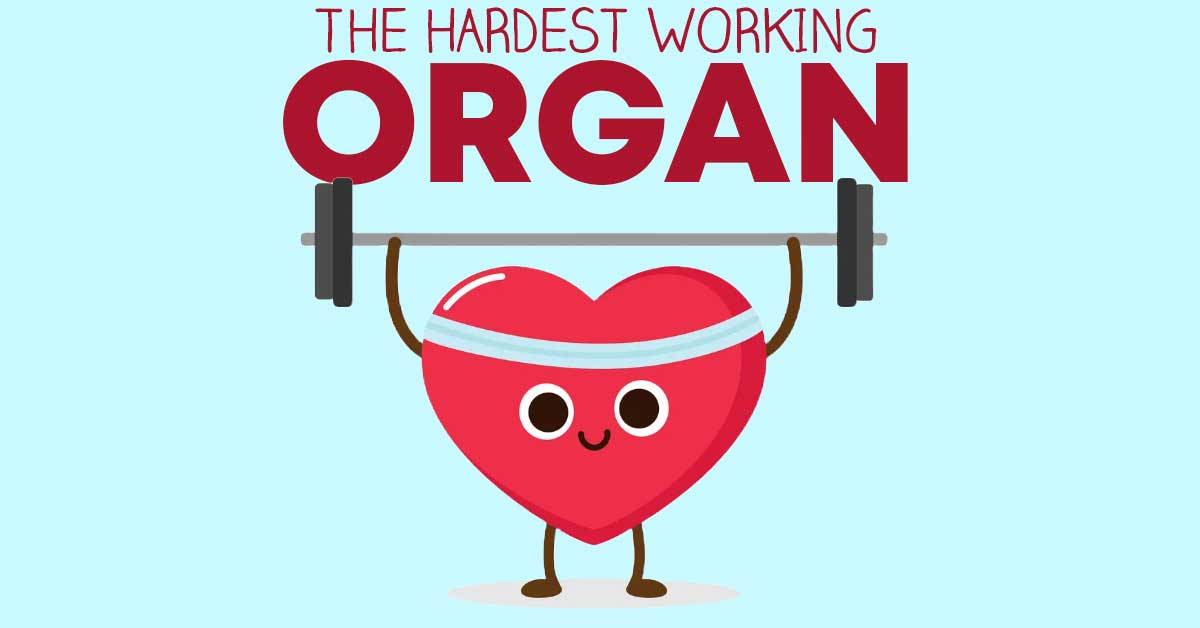We’re highlighting your body’s hardest-working organ… your heart! Though your heart is an organ, it also works like a muscle, pumping blood through your giant system of blood vessels (over 60,000 miles long).
Like any muscle in your body, the more you work your heart, the better you can condition it. The harder you work, the more nutrients and oxygen your heart needs to keep up. With consistent exercise, your body can pump blood more effectively, thus pushing a greater volume with each beat.
What does Each Side of Your Heart Do?
Though the traditional cartoon heart with its symmetrical curved sides is not an accurate representation of what a heart looks like, there is indeed a “right” and a “left” side to the heart.
Right side: Receives blood with minimal oxygen and directs it to your lungs where carbon dioxide exits and oxygen enters. This side of your heart does the cleaning.
Left side: With the blood now filled with oxygen from the right side, the left side disperses the blood throughout the rest of your body. This is the distribution side of your heart.
What Affects Your Heart Rate?
A stronger heart means it is more capable of pumping blood efficiently, which can be improved with conditioning. This can result in a lower heart rate at rest and the ability to reach higher heart rates if your body demands it.
Your heart rate is typically 60 to 100 beats per minute at rest. When you are active, it will increase your beats per minute to meet the needs of the rest of your body. Your heart rate is established by electrical signals that trigger muscle cells in your heart’s chambers to contract.
If you have high blood pressure, it is often because portions of your arteries are blocked, preventing your blood from flowing easily, even at rest. This can result in higher resting blood pressures.
More physical activity = higher heart rates. But this is not the same for each person. Two people running the same speed will not have the same heart rate, in fact, they could be substantially different depending on their conditioning and other health attributes.
Besides Exercise, How Can You Strengthen Your Heart?
While exercise is crucial for your overall health, there are a few other additions you can add to your routine that can help keep your heart strong.
Decrease sodium intake: Consuming salty foods, or those high in sodium can raise your blood pressure, causing your heart to work harder, even at rest, leading to long-term problems.
Sit less: Those that sit for prolonged periods have been connected to having increased blood pressure, even if they receive the recommended amount of daily physical activity. Take breaks from sitting to stand up more often.
Learn about DASH foods: DASH is a diet plan (Dietary Approaches to Stop Hypertension) designed to help lower blood pressure. While you do not have to commit to the diet plan 100%, choosing some of the recommended foods that are high in potassium, calcium, and magnesium, can make a difference.


